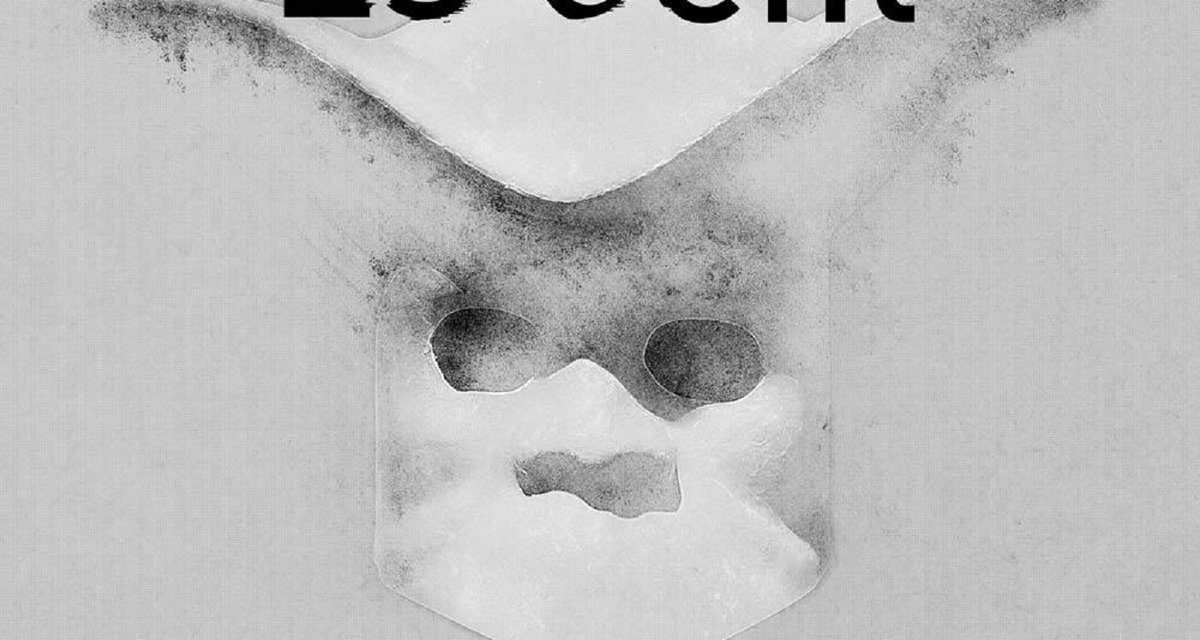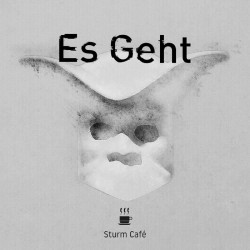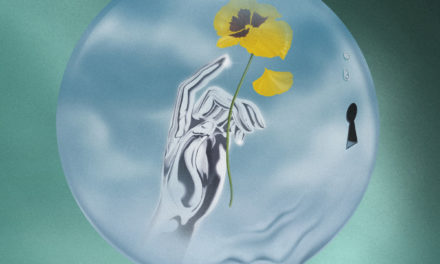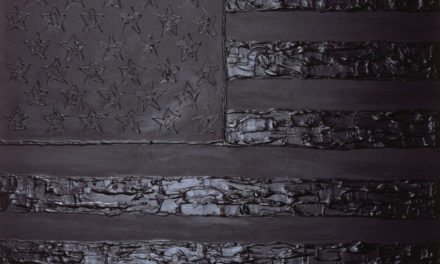Sturm Café
Es Geht
SCR
For a band whose songs are so often incredibly minimal in their construction, it’s difficult to pin down what makes Sturm Café so distinct. They certainly carry a good amount of the classic EBM genome, which they hold in common with so many of their fellow Swedes. Their choice of German vocals isn’t especially distinct in that regard either, though polyglot friends have indicated that their use of the Deutsch tongue is certainly idiosyncratic, if not downright quirky. Even their commitment to bringing clear melodies to a genre which often forsakes them for the sake of pure rhythm isn’t wholly unheard of. And yet the odd quirks around the corners of Sturm Café’s aesthetic set them apart from their peers, and those continue on new EP.
On Es Geht Sturm Café musically sit more or less where they did a couple of years back with their excellent Europa! LP. The bare-bones drum machines and basslines of classic EBM are presented sparsely yet softly, a la DAF, and are overlaid with melodic synth work which borrows from synthpop but feels so stripped-down that early minimal wave often feels a more accurate comparison. Despite the apparent softness and approachable nature of their tunes, it’d be tempting to lump them into the same camp as SPARK!, but they never give themselves over to the swing or joy of synthpop. The oddly regimented march of tunes like “Arsenal” is comparable to the Euro-pop nostalgia of early Welle:Erdball, but even they never pursue austerity quite as stridently as Sturm Café. The one curveball in these six tracks is “Traummann”, which sounds more like a remix than an original; synths and vocals are chopped up in sequence to an electro beat which has more in common with The Hacker than any EBM purists.
The vocal delivery of Jonatan Löfstedt really is one of the more underappreciated elements of Sturm Café’s work and goes a long way in helping them claim their own plot of land. Jaunty and whimsical, it’s a far cry from the guttural bark of most of Löfstedt’s peers, and in embracing melody it avoids any movement towards the earnestly anthemic. Instead, it has the carefree reverie of someone recalling the songs of their youth while at the bar or maybe even in the shower, even when he’s singing odes to Swedish regicides (“Anckarström”).
Es Geht doesn’t really break from the established Sturm Café template (apart from the aforementioned “Traummann”), but I’m not sure that it needs to. As familiar as some elements of Sturm Café’s work might be to EBM die-hards, no one else out there is really arranging them with the same mix of stoicism and simplicity, and certainly not with the same cryptic humour.






